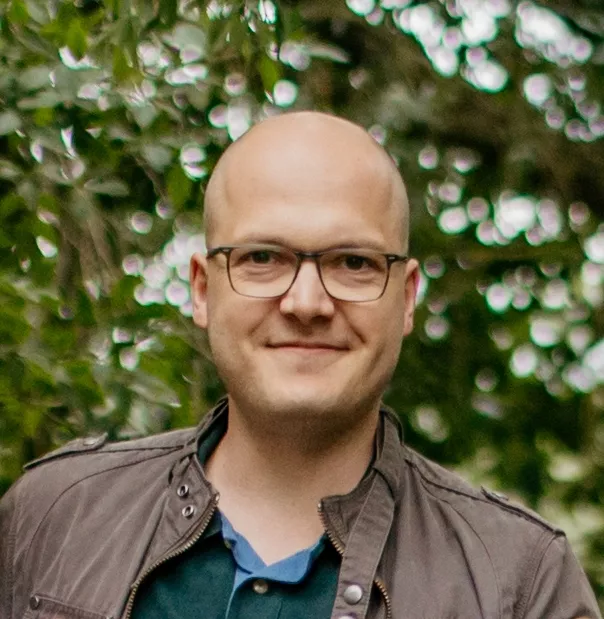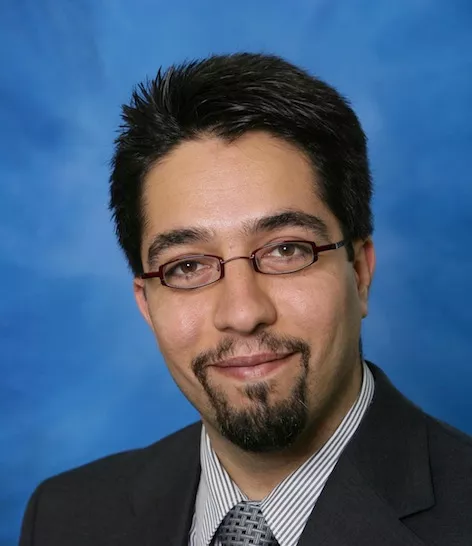This website uses cookies that store information about your usage of the page. By continuing to use this page you confirm you are happy with that.
Review and change how cookies are used.
The Robot House is run by University of Hertfordshire's Robotics Research Group, part of the School of Physics, Engineering and Computer Science. These are the two key team members:
Robot House Manager, Reader in Interactive Assistive Technology at University of Hertfordshire (UK)
p.holthaus@herts.ac.uk
Dr Patrick Holthaus is a Reader in Interactive Assistive Technology in the Robotics Research Group and manages the Robot House. He is also a Visiting Lecturer at the School of Physics, Engineering and Computer Science at the University of Hertfordshire. Patrick coordinates all research activities inside Robot House, supports internal and external collaborators in using the facilities, and advises them while conducting research. He also maintains the robots and all the other technology in Robot House.
Previously, Patrick was a postdoctoral researcher in the Cognitive Systems Engineering group at the cluster of excellence Cognitive Interaction Technology (CITEC). He received his doctorate from Bielefeld University, where he researched concepts of spatial awareness for social robots within the collaborative research cluster Alignment in Communication.
Patrick's research interests include systems integration in heterogeneous environments, interaction architectures and behaviour coordination, and the social credibility of companion robots.

Professor of Human-Robot Interaction at University of Hertfordshire (UK), responsible for the Robot House project.
f.amirabdollahian2@herts.ac.uk
Dr Farshid Amirabdollahian is Professor of Human-Robot Interaction. He coordinated the delivery of the EU-funded Accompany and Script projects, which focused on home-based human-robot interaction with companion robots and rehabilitation robots. He is a former member of the University of Salford’s THINKlab, where he was the Technical Director and a member of the Centre for Rehabilitation and Human Performance Research. He was also a Senior Research Fellow at the Centre for Rehabilitation Engineering Studies (CREST), Newcastle University.
His research focuses on human-robot interaction, in particular issues around rehabilitation and assistive robotics, robots for enhancing personal interaction and safety. He is a member of ISO TC299, working on the development of new industry safety and ethics standards for robots and robotic devices.

The core team is supported by an extended group of researchers in different roles.
Dr Kheng Lee Koay Scientific Manager of Robot House, Senior Lecturer at University of Hertfordshire (UK)
Dr Kheng Lee Koay is currently a Senior Lecturer in the Department of Computer Science, University of Hertfordshire. He joined the Adaptive Systems Research Group in 2003 as a Research Fellow and has spent a significant part of his time managing and developing technology and infrastructure for the Robot House. He has previously conducted and supervised research mainly involving Human-Robot Interaction studies in the Robot House for European (i.e. COGNIRON, LIREC, ACCOMPANY, SECURE) and EPSRC (RobotSafe) funded projects.
His research interests include, human-robot interaction, social robotics, robotic home companions, agent migration and mobile robotics. He is a former member of the Centre for Neural and Adaptive Systems at the University of Plymouth.

Dr Michael Walters Co-Investigator of Robot House, Research Fellow at University of Hertfordshire (UK)
Dr Michael Walters gained an HND in Computer Aided Engineering in 1988, MSc in Neural Networks and Robotics in 1993 and PhD in 2008. Previously, he has worked on the EU funded research projects, COGNIRON, LIREC and ACCOMPANY, where he researched in the area of companion and domestic service robots. Also the AURORA project, where his work focussed on developing a new version of the robot KASPAR, which is used for therapy for children with autism. He currently lectures on Robotics, Artificial Intelligence and Computer Architecture courses and has previously taught courses including Industrial Automation, Robotics, Computer Aided Engineering, Computer Aided Drawing and Design, and Mechatronics.
His current research interests include Human-Robot Interaction (HRI), in particular research into robot appearance and how they should behave in order to be acceptable and facilitate interaction with people.

Prof Kerstin Dautenhahn Founder of Robot House, IEEE Fellow, Professor of Artificial Intelligence at University of Hertfordshire (UK) and Canada 150 Research Chair in Intelligent Robotics, University of Waterloo (Canada)
Professor Kerstin Dautenhahn established and led University of Hertfordshire’s Adaptive Systems Research Group from 2000 to 2018 and founded the Robot House. During this time, she led the creation and development of social robot Kaspar, which is designed to improve the lives of children with autism. She is Principal Investigator of the EPSRC grant for upgrading the Robot House infrastructure and opening its access to non-UH industry and academics. She is currently setting up the new Social and Intelligent Robotics Research Laboratory at University of Waterloo.
Her main research areas are human-robot interaction, social robotics, socially intelligent agents and artificial life. She is joint Editor in Chief of the journal Interaction Studies: Social Behaviour and Communication in Biological and Artificial Systems. She is also an Associate Editor of the International Journal of Social Robotics, IEEE Transactions on Cognitive and Developmental Systems and IEEE Transactions on Affective Computing.

Please get in touch to discuss booking requests, collaborative research ideas and how to access the Robot House facility.
Robot House has opened its doors to academia and industry in the UK and internationally. Find out how to access the facility.